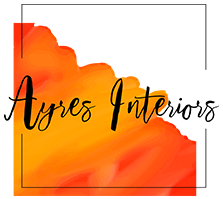The book Bloomsbury Rooms on my library shelf has often inspired my interiors. It’s a large book that delves deeply into the lives of Virginia Woolf and her sister, the artist Vanessa Bell.
Vanessa Bell, Virginia’s artist sister
These sisters and their influence on the 20th century are huge subjects — ones I’m not equipped to go in depth on, but subjects that have probably inspired more artists, writers, and designers than you can imagine.
The story unfolds that in 1929, Dorothy Todd, the editor of English Vogue, collaborated on a book called The New Interior Decoration, which put forth the very edgy idea of two home design approaches capturing Europe: “One praises the high-tech look of International Style design…led by Le Corbusier. The other hails domestic design as a refuge from mass-production and standardization, promoting the home as the ‘last refuge’ of “that individuality which modern conditions are suppressing in our public life.”
La Villa Savoye, Poissy, France by Corbusier
The library, Charleston Farmhouse
Here’s where Vanessa and Virginia come in.
When the girls’ father, died, Vanessa happily left Victorian Kensington with Virginia and brothers Thoby and Adrian and settled in Bloomsbury, an area of London full of “bookshops, museums, concert halls, art schools and students’ lodgings.”
Vanessa and Virginia were giddy with their unconventional lifestyle, “full of experiments and reforms. We were going to do without table napkins; we were to have large supplies of Bromo instead; we were going to paint; to write; to have coffee after dinner instead of tea at nine o’clock.” Breaking free of strict Victorian dictates, the sisters traveled, took lovers and delved into an alternative lifestyle with several young intellectuals, reminiscent of Gertrude Stein’s salons in Paris. Virginia wrote; Vanessa painted – in a loose, romantic style.
Fast-forward several years, and Vanessa and artist lover Duncan Grant moved to Charleston Farmhouse in East Sussex. Here they imposed their decorative styles throughout the house and a vast, walled garden, covering their domestic scene with patterns, abstract designs, symbols and rich color.
Duncan Grant
Self portrait by Duncan Grant
Charleston Farmhouse
The garden at the farmhouse
Their London friends often gathered at Charleston Farmhouse. Called the Bloomsbury Group, from where they hailed, the group included writers, intellectuals, philosophers and artists — John Maynard Keynes, E.M. Forster, Lytton Strachey, and of course Virginia Woolf, to name a few.
Art.com is still offering Grant’s and Bell’s artwork in poster form, suitable for framing. 
Painting by Bell
Grant’s flower painting
An interior by Bell
As a decorator, I am fascinated by the idea that they lived within and through their art, and expressed themselves and their philosophy in almost every aspect of their home decorating, while supporting themselves with important commissions in libraries, educational halls and private mansions.
Decorated window and ceramics at Charleston Farmhouse
Farmhouse detail
Farmhouse drawing room
Farmhouse garden room
Farmhouse studio
Farmhouse bedroom
Detail of library by Grant
Mural by Bell
I’m reminded of a quote by Thomas Jefferson that I have printed on small calling cards. “That which we elect to surround ourselves with becomes the museum of our soul and the archive of our experiences.”
Charleston Farmhouse lives and breathes with their bohemian style that still inspires, to this day, fashion, textiles and entire interiors. It seems obvious that Virginia Woolf, who lived down the road in a small 18th century cottage, found ‘”a room of her own” in her writings by freeing herself from the Victorian mores that the Bloomsbury Group encouraged her to reject.
Virginia’s bedroom at Monk’s House, her 18th C. cottage




























No Comments